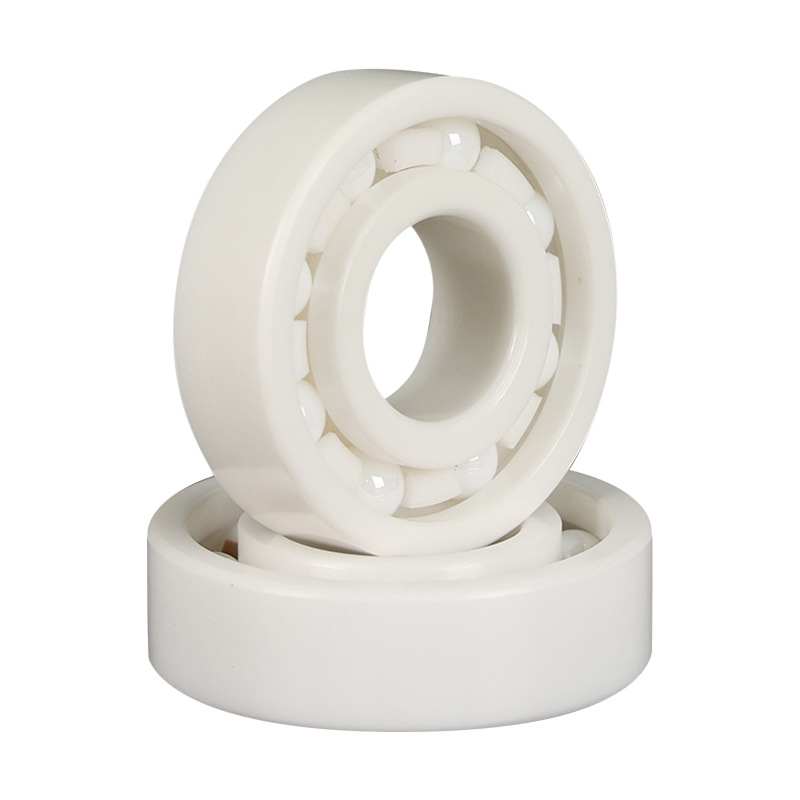Aug . 14, 2024 00:19 Back to list
Exploring the Manufacturing Techniques of Bulk Ceramic Ball Bearings for Industrial Applications
The Manufacturing Process of Wholesale Ceramic Ball Bearings
Ceramic ball bearings have gained significant attention in the manufacturing industry due to their superior properties compared to traditional metal ball bearings. The demand for these bearings has led to an expansion in wholesale manufacturing, ensuring that businesses can access high-quality products at competitive prices. This article will delve into the manufacturing process of ceramic ball bearings, highlighting the key stages involved.
1. Material Selection
The first step in producing ceramic ball bearings is the selection of raw materials. The most common materials used for ceramic bearings are silicon nitride (Si3N4) and zirconium oxide (ZrO2). Silicon nitride is known for its excellent hardness, low density, and thermal stability, making it ideal for high-performance applications. On the other hand, zirconium oxide offers high toughness and is suitable for applications requiring corrosion resistance. The choice of material depends on the intended application and performance requirements.
2. Powder Preparation
Once the material is selected, the next step is powder preparation. The raw ceramics are processed into fine powders using techniques like ball milling or jet milling. This step is crucial as the particle size and distribution directly influence the final properties of the ball bearings, such as strength and wear resistance. Additives may also be introduced during this phase to enhance the flowability and compactibility of the ceramic powders.
3. Compaction
The prepared ceramic powder is then subjected to a compaction process, where it is pressed into the desired shape. This can be done using cold isostatic pressing (CIP) or uniaxial pressing. In cold isostatic pressing, the powder is enclosed in a flexible mold and subjected to uniform pressure, resulting in a compacted green body. This stage is vital as it determines the dimensional accuracy and density of the ceramic ball.
4. Sintering
wholesale ceramic ball bearing manufacturing process

After compaction, the green body undergoes a sintering process. Sintering involves heating the compacted ceramic in a controlled environment at high temperatures, typically between 1600°C and 1900°C. During this process, the particles bond together, leading to densification and the development of desirable mechanical properties. The sintering atmosphere is carefully controlled to prevent contamination and maintain the integrity of the ceramic material.
5. Precision Machining
Post-sintering, the ceramic balls may require precision machining to achieve the necessary tolerances and surface finish. This is particularly important for applications with stringent performance standards. Techniques like grinding and lapping are employed to refine the dimensions and ensure the smoothness of the bearing surfaces. This stage is critical, as any imperfections can affect the bearing’s performance and longevity.
6. Quality Control
Quality control is an integral component of the manufacturing process. Each batch of ceramic ball bearings undergoes rigorous testing to ensure they meet industry standards and specifications. Tests may include hardness testing, microstructure analysis, and dimensional inspections. Additionally, performance tests under varying loads and speeds are conducted to evaluate wear resistance and operational efficiency.
7. Packaging and Distribution
Once the ceramic ball bearings pass quality control, they are appropriately packaged to prevent damage during transportation. Bulk packaging is often utilized for wholesale distribution, ensuring that businesses can acquire large quantities efficiently. Proper labeling and documentation accompany the products, providing crucial information about specifications and material certifications.
Conclusion
The manufacturing process of wholesale ceramic ball bearings is a sophisticated blend of material science and engineering. From material selection to precision machining and quality control, each step plays a crucial role in ensuring that the final product meets the high standards expected by industries worldwide. As technology advances, the efficiency and performance of ceramic ball bearings continue to improve, making them a preferred choice in various mechanical applications.
Latest news
-
25MM 2 BOLT UCFLX05-14 Flange bearing unit( oval)
NewsMar.07,2025
-
4 bolt UCF 200 series Pillow block bearings
NewsMar.07,2025
-
25MM 2 BOLT UCFLX05-14 Flange bearing unit( oval)
NewsMar.07,2025
-
UCF216-50 4-Bolt Flange Housing Square Bearing
NewsMar.07,2025
-
25MM 2 BOLT UCFLX05-14 Flange bearing unit( oval)
NewsMar.07,2025
-
spherical roller bearing material exporter
NewsMar.07,2025





